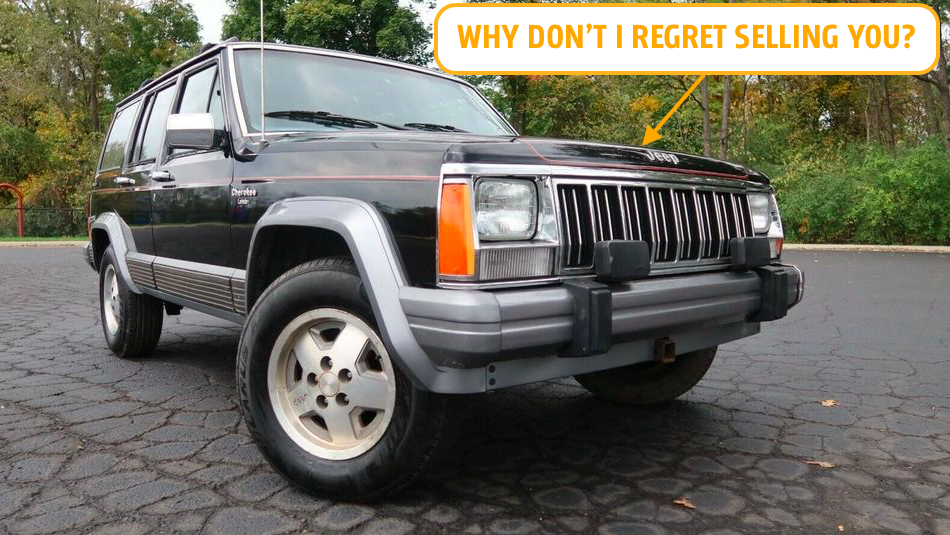I Love Cars And Yet I've Never Regretted Selling One. What Does That Say?
I basically live and breathe cars. I love them. And yet, I wonder: Why have I never regretted letting one go?
I'm about to sell the most beautiful Jeep Cherokee XJ I've ever seen. My favorite car ever made, in perfect condition — a vehicle I'll likely never be able to afford again. And yet, I don't feel bad parting ways with it. I'm trying to understand why that is.
It's pretty obvious that I, owner of 12 automobiles, love these mechanical contraptions. I've spent hundreds of hours bonding with cars while fixing their various maladies; then I've spent hundreds more hours strengthening those bonds further by taking the machines on epic trips.
The Postal Jeep is the vehicle that I fell in love with hardest. I had to spend so much time patching up its wounds, and in return, the plucky cube rewarded me with an incredible road trip during which it refused to let me down. The Jeep trudged up mountain passes and through treacherous off-road trails. For 4,000 miles, it remained unstoppable. I loved that Jeep.
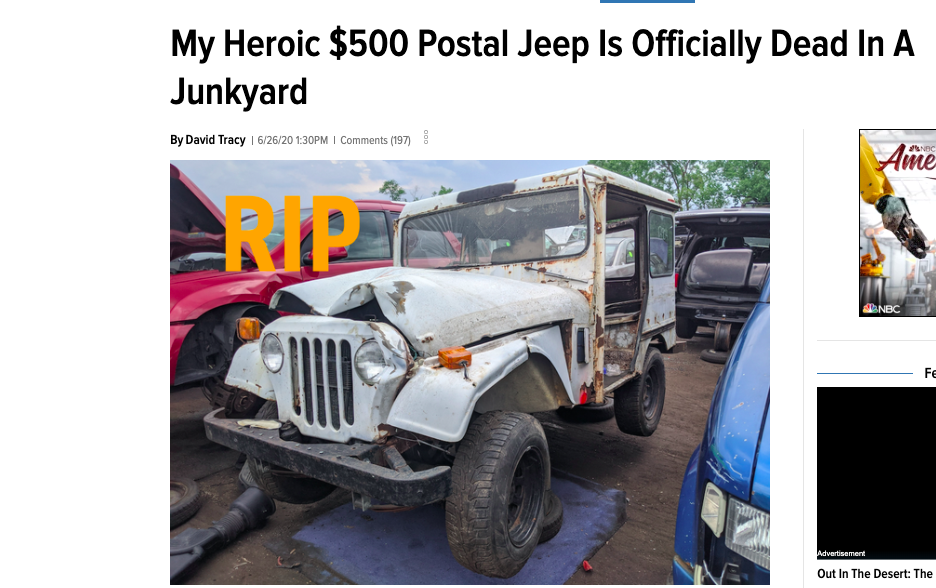
I felt similarly about my 1948 Willys CJ-2A. It was a hopeless farm vehicle when I bought it, but after much time wrenching with my friends in Michigan, it became the most capable off-road vehicle I've ever owned. After days off-roading that Jeep in Moab, I was head-over-heels for the little flatfender. And yet I sold it in the summer of 2020, and I don't want it back.
I can't really think of another instance where I've given up something I legitimately love without feeling at least a bit bad or uncertain about it. I don't quite understand it.
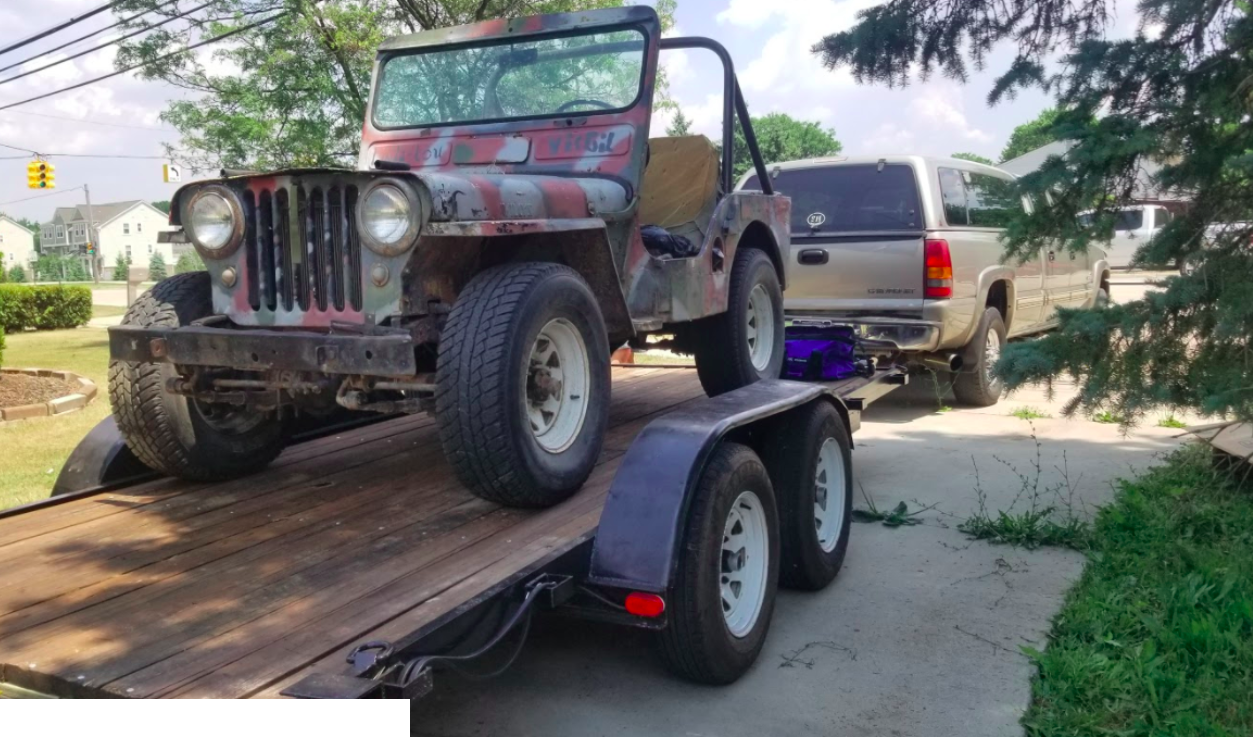
Here at Jalopnik, we often talk about how cars are so different than other "appliances." People name their cars, they fall in love with them, they take them to shows, they join clubs and forums for that specific car, and they sometimes have a hard time parting ways with them. This is what makes cars so special over other mechanical contraptions: You can build a real relationship with a car.
I certainly have, and I'll admit that I've had a hard time deciding to part ways with some of my machines. But once I do make that choice, I've never said "I wish I hadn't sold that car." Even the Postal Jeep, which wound up crushed in a Chicago junkyard — I loved that machine, but I don't regret selling it.
It's possible that there's a certain level of stress relief associated with getting rid of another vehicle that will likely demand repair. Or perhaps it's just a realization that, as awesome as any single vehicle may be, there are so many other cool cars out there (Is this how attractive people feel about breakups?). I chatted with my coworker Raphael Orlove, and he said he's felt similarly about selling cars. "I think about the memories of the car, not necessarily the car itself," he told me. I get that.
The Postal Jeep and the Willys were fantastic machines, and the memories I made with them will stick with me forever. But those memories have so much value that continuing to drive the vehicles seems to almost yield diminishing returns. It seems to me that the emotional value of a car can be asymptotic — once you go on a few epic trips, love for the car has essentially reached a plateau. Continuing to drive it will still be epic, but it's not going to do for you what those first few incredible experiences did. At least, that's how I felt about the Postal Jeep and the Willys. I still loved driving them after those Moab trips, but I felt like I'd already had my fun, and it was time to move on.
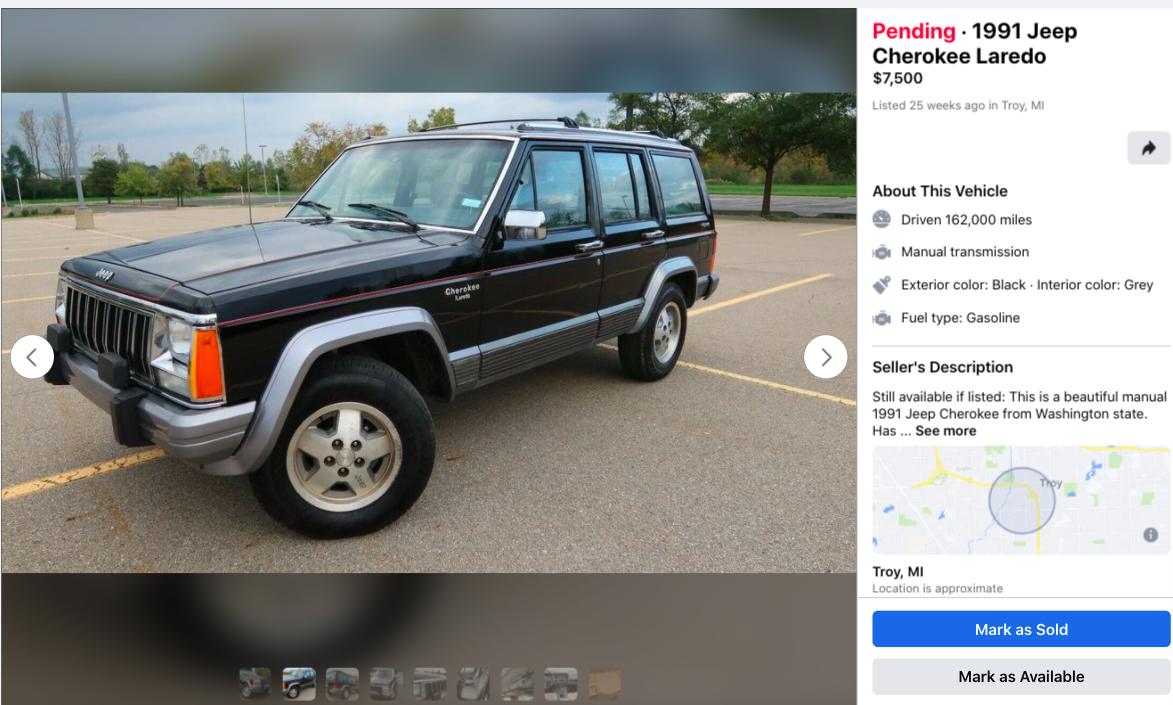
I've also had zero regret selling rare and beautiful machines. Take the 1991 Jeep Cherokee XJ above. I bought it for $2,000 three years ago. All I've done is fix it up, and now I'm selling it back to its original owner for $7,000. Given all the work I've done to it, I wouldn't call this a successful "flip," and that certainly wasn't my aim when I bought it in the first place. I bought it because it is a beautiful example of my favorite vehicle ever made, the Jeep Cherokee XJ.
Just look at that thing. If I were to search for another stick-shift XJ in that condition, it'd take me years to find one, and even then, I'd pay well over $7,000 to acquire it (mine has a salvage title, so it's worth a bit less). And yet, knowing that, I still have no problem letting this vehicle go. It's an amazing vehicle, and I really enjoy driving it. But I just don't feel strongly about keeping it. I still don't fully understand the feeling.
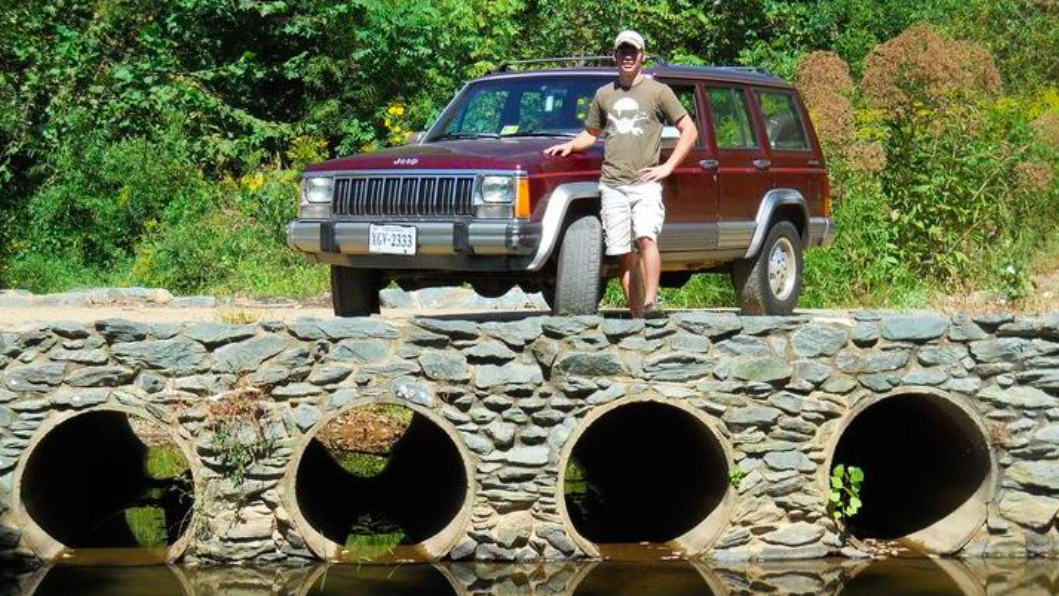
There is one car that I'm not quite willing to part ways with, and that's my first Jeep (shown above). That's partly because I've heard from so many people that they regret selling their first car; if you search the web, you'll find countless examples of people saying just that.
That said, it seems like most people regret selling their first car because they can't get that car anymore, probably because values have gone up. My original XJ is a 1992 automatic with rusty rocker panels. I don't see such an XJ ever being out of my reach. So I bet I could sell mine and find another one if I wanted to later in my life.
I don't know if I'll do that, though, because there's this weird sense of loyalty that I have towards that first Jeep. It was the one that got me through college. It taught me how to wrench. It helped me get my jobs at Chrysler and Jalopnik. In reality, it was I who did these things, and the Jeep was just a contraption that enabled me, but that's not how my brain works. This Jeep was there for me; to ditch it would seem almost like betrayal. And yes, I realize that's a ridiculous thing to say about a non-sentient machine.
Anyway, with the beautiful 1991 XJ gone, I've still got a long way to go before I reach my five-vehicle goal. I think as long as I keep my original Jeep Cherokee and my beloved Jeep J10, I can sell anything else and really not feel even the slightest pang of guilt. Does this mean I don't love the other vehicles? I don't think it does. But I'm not really sure.
